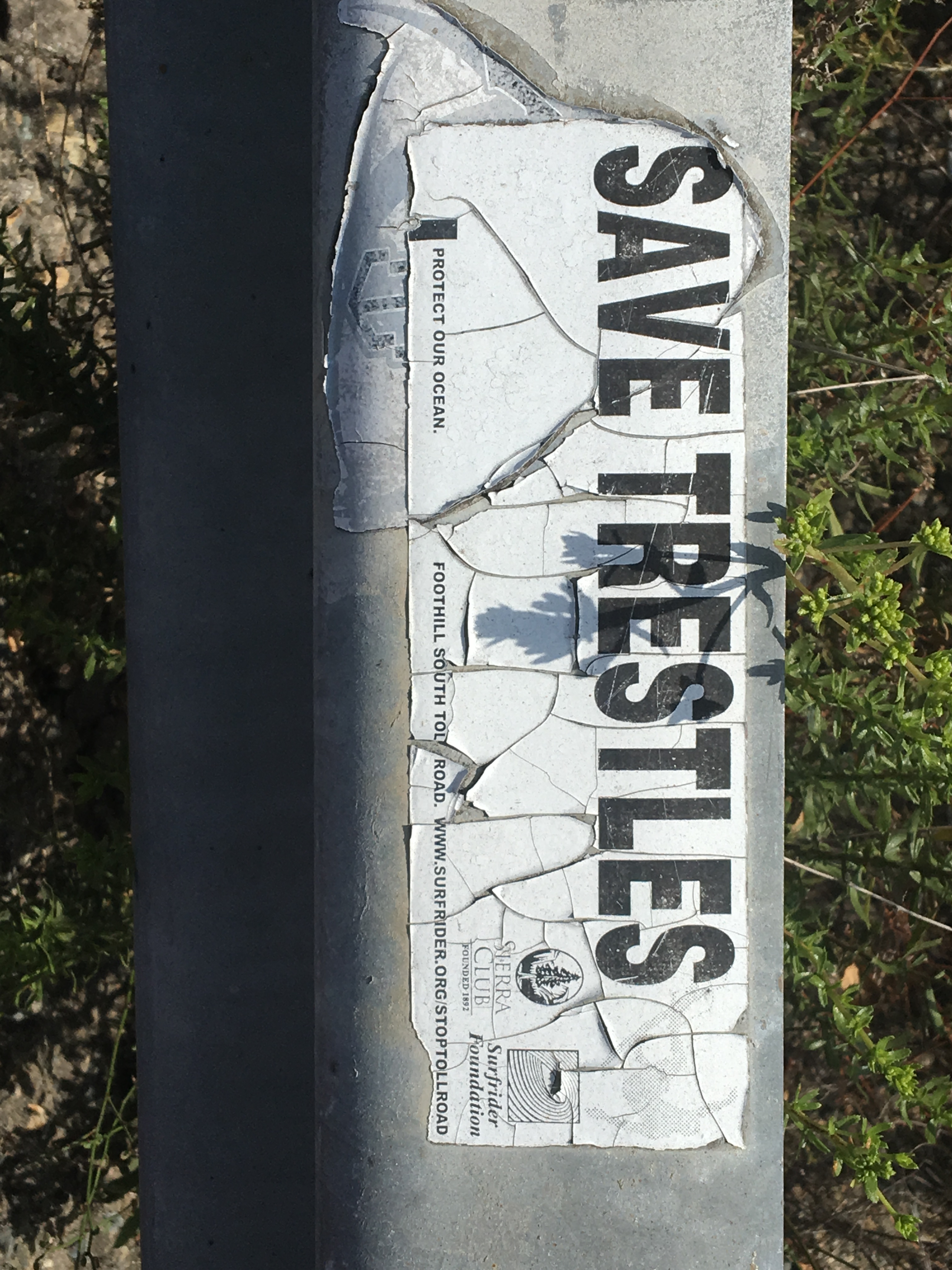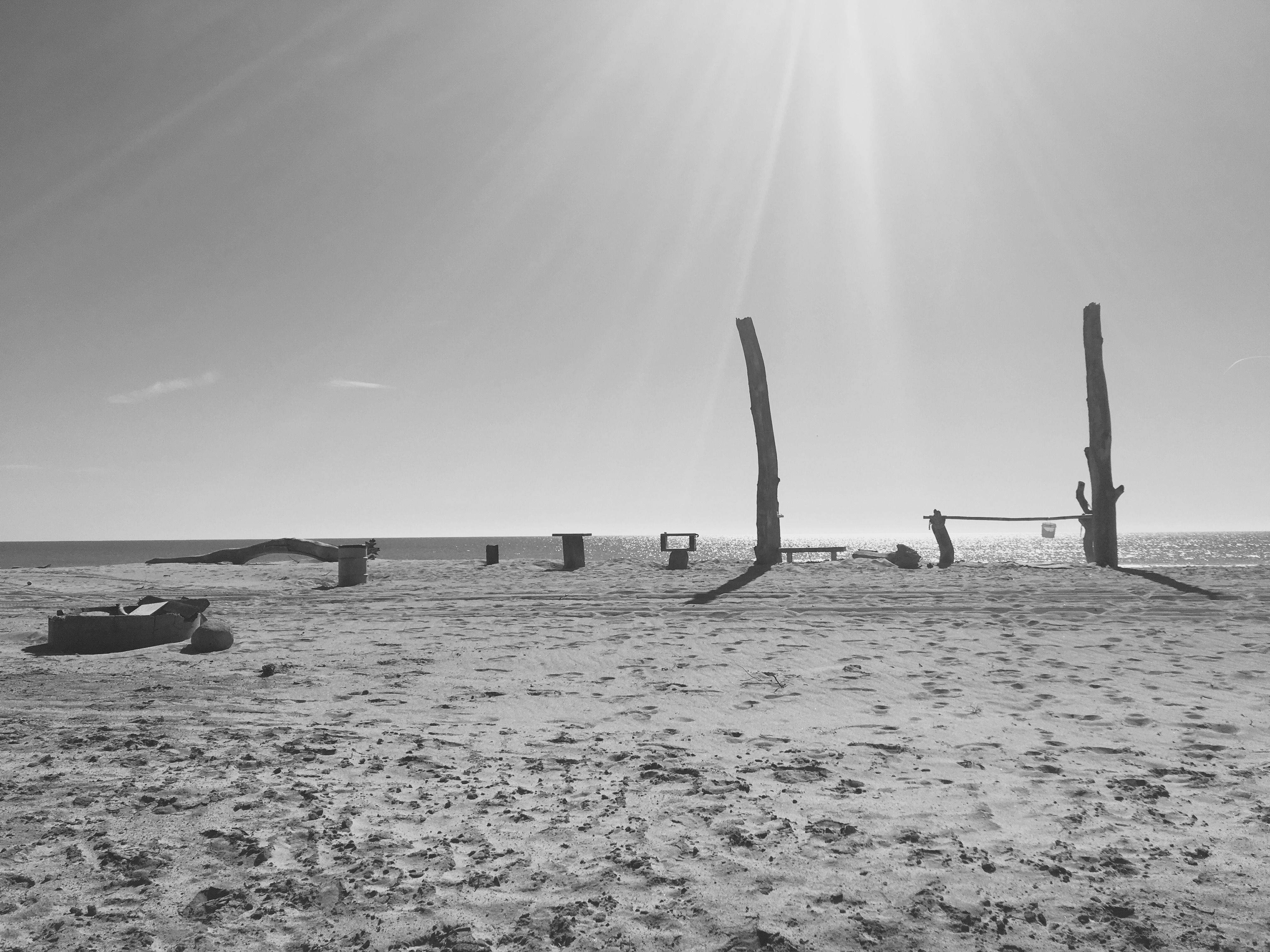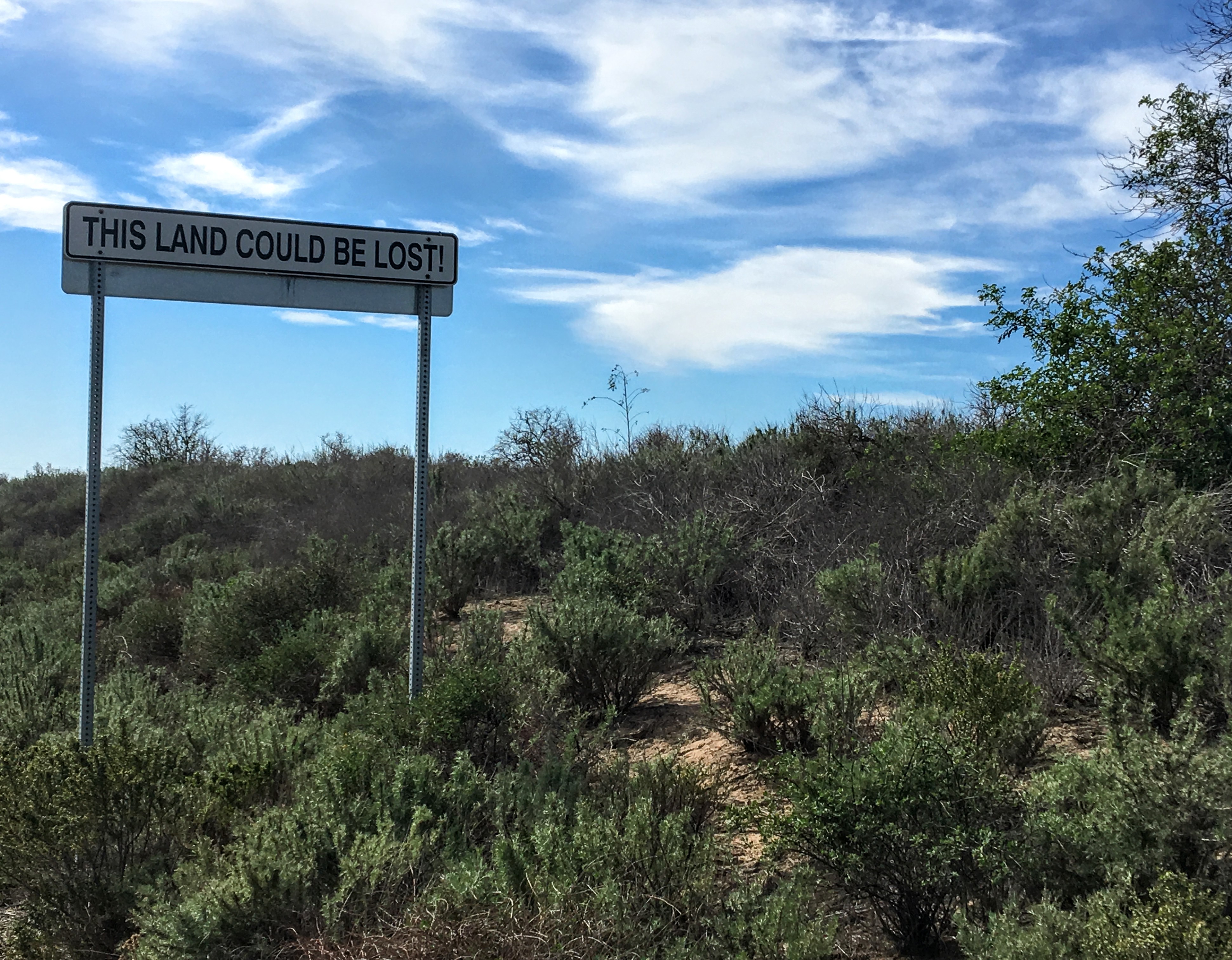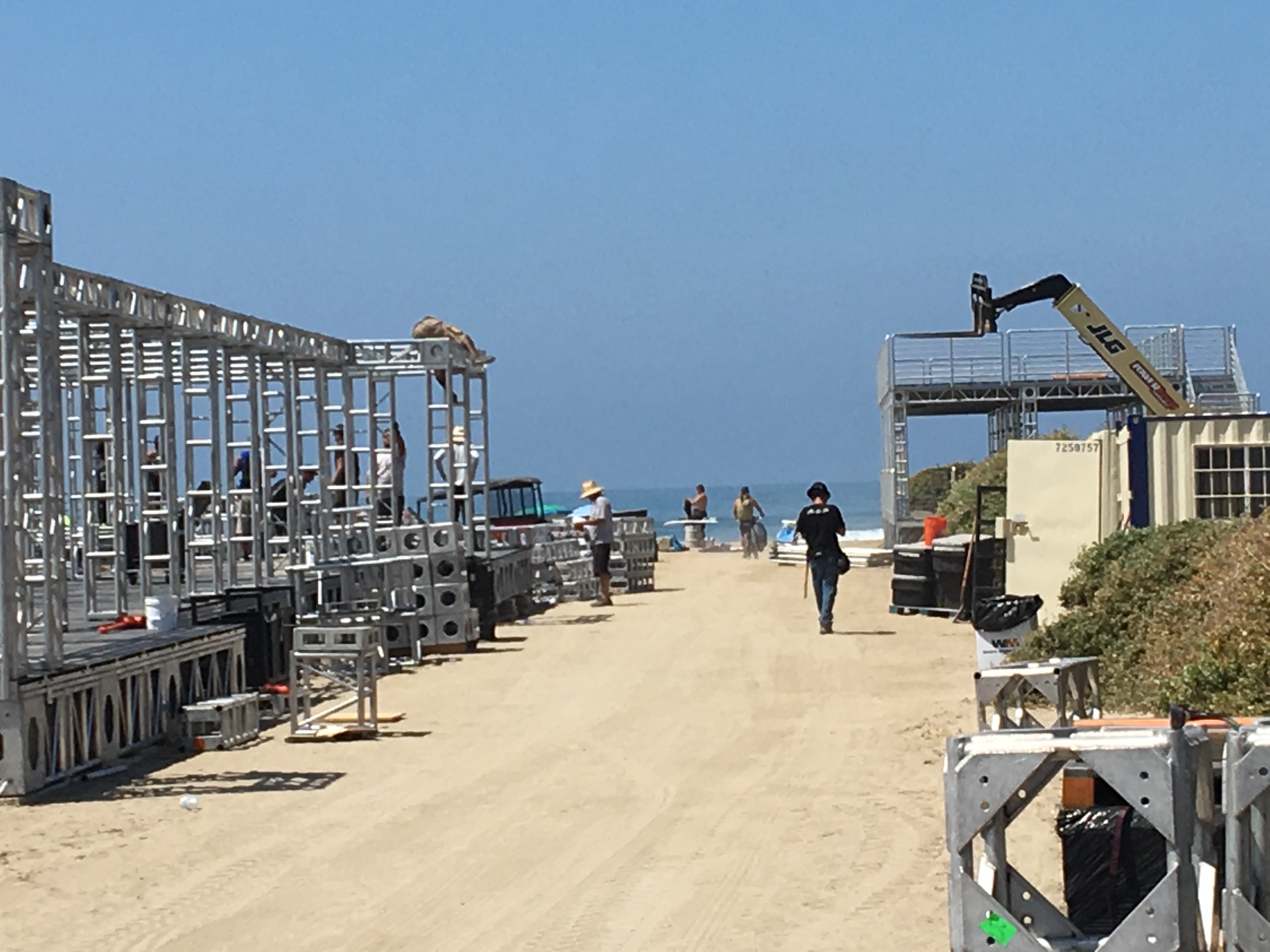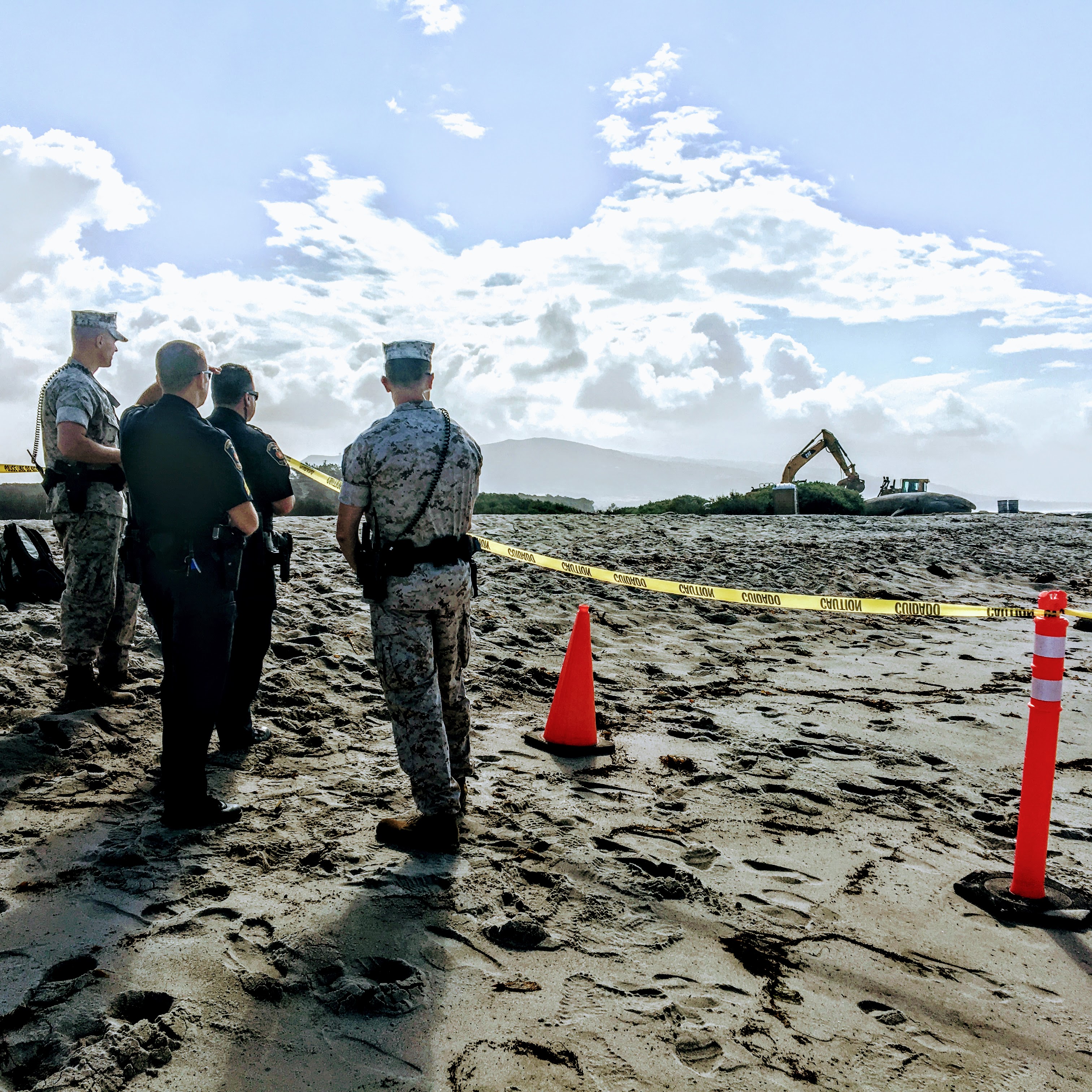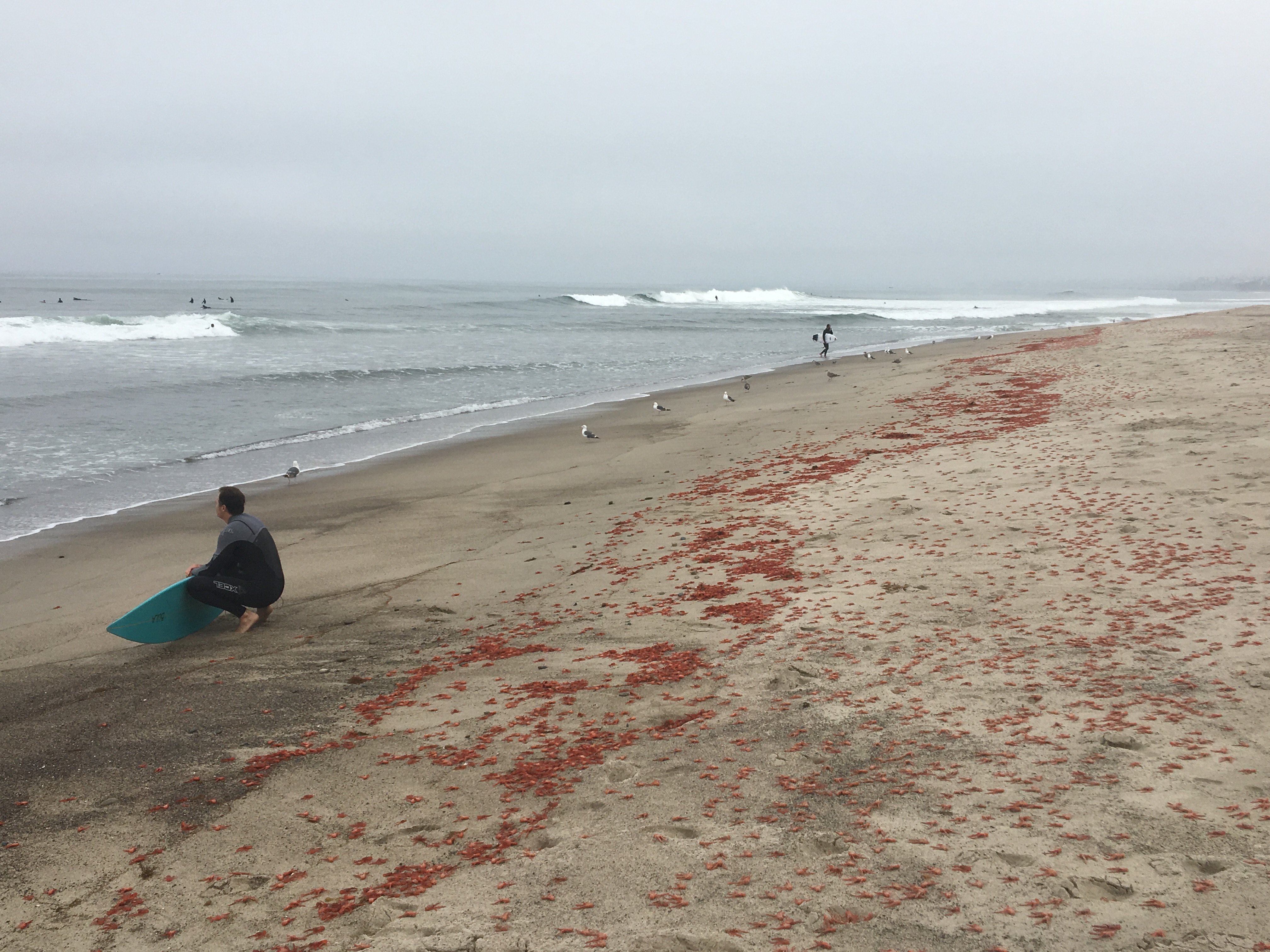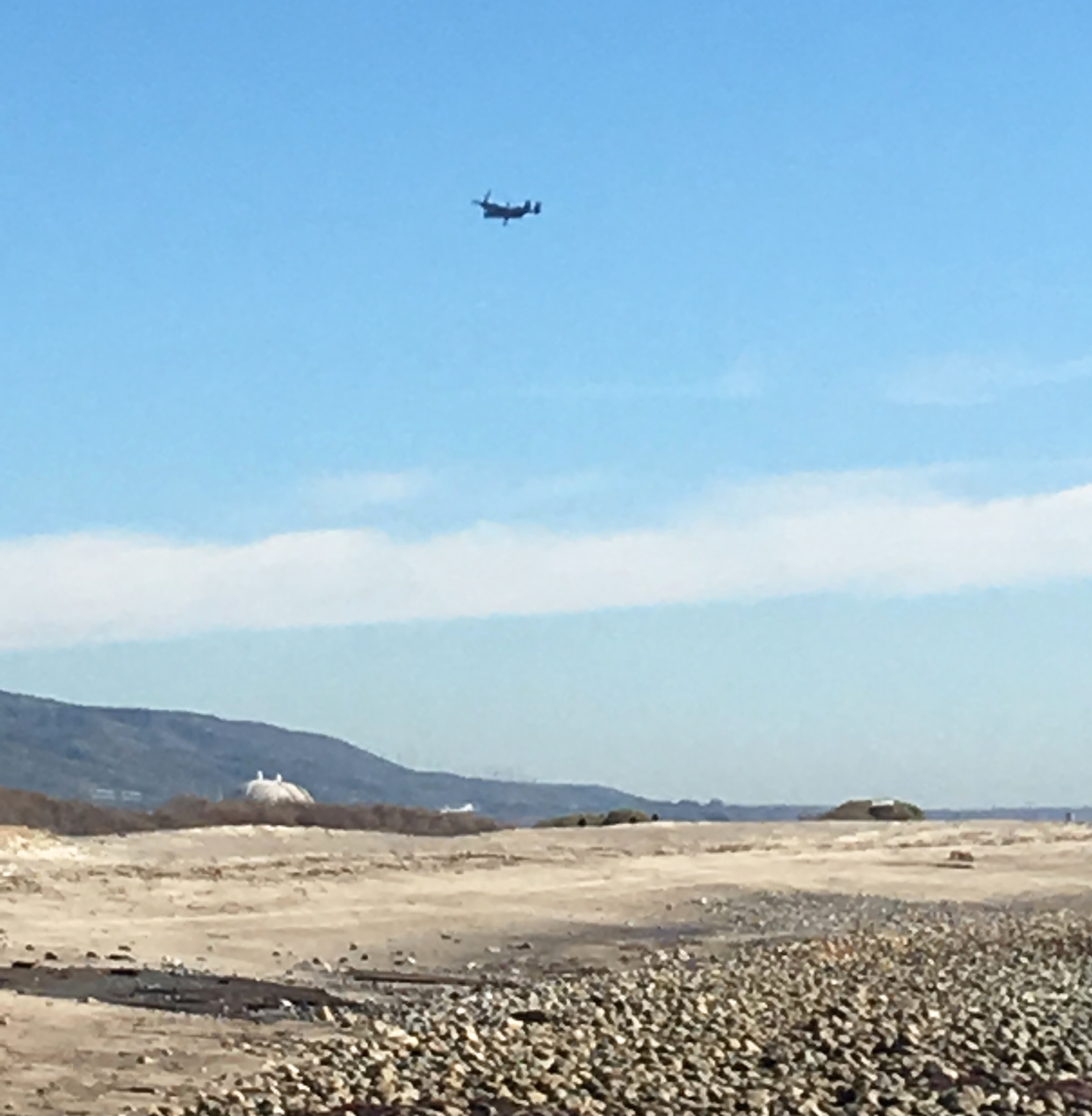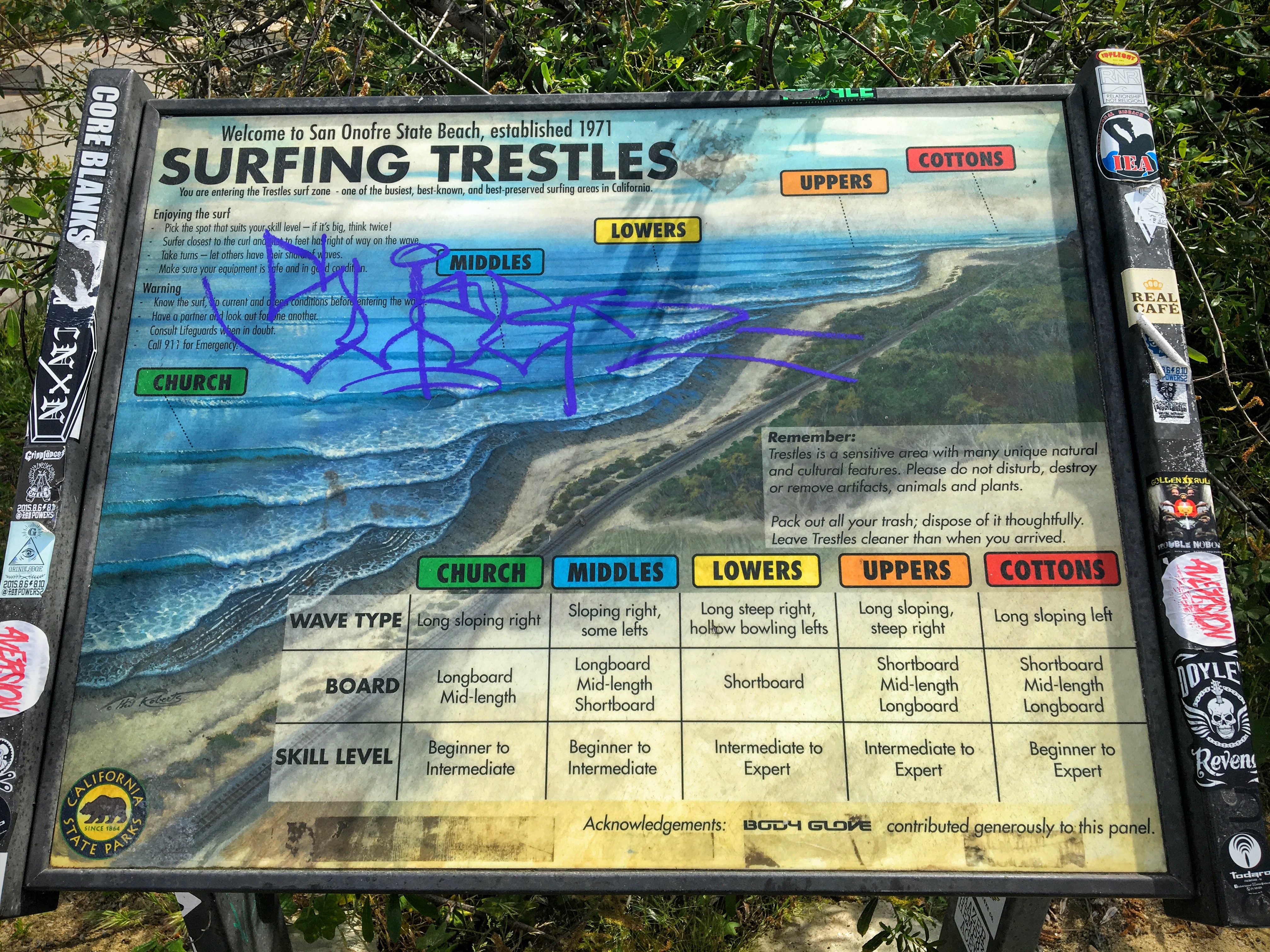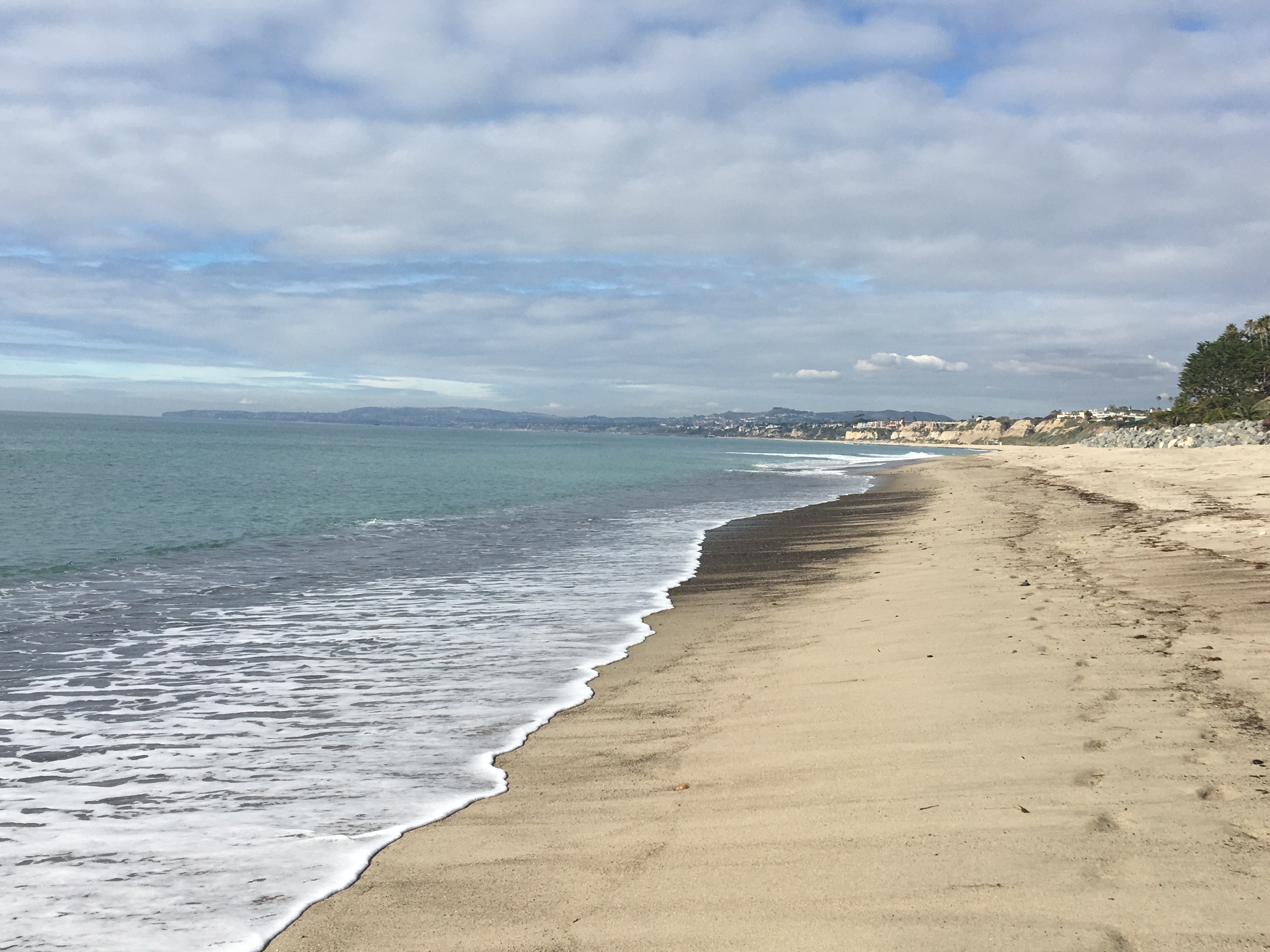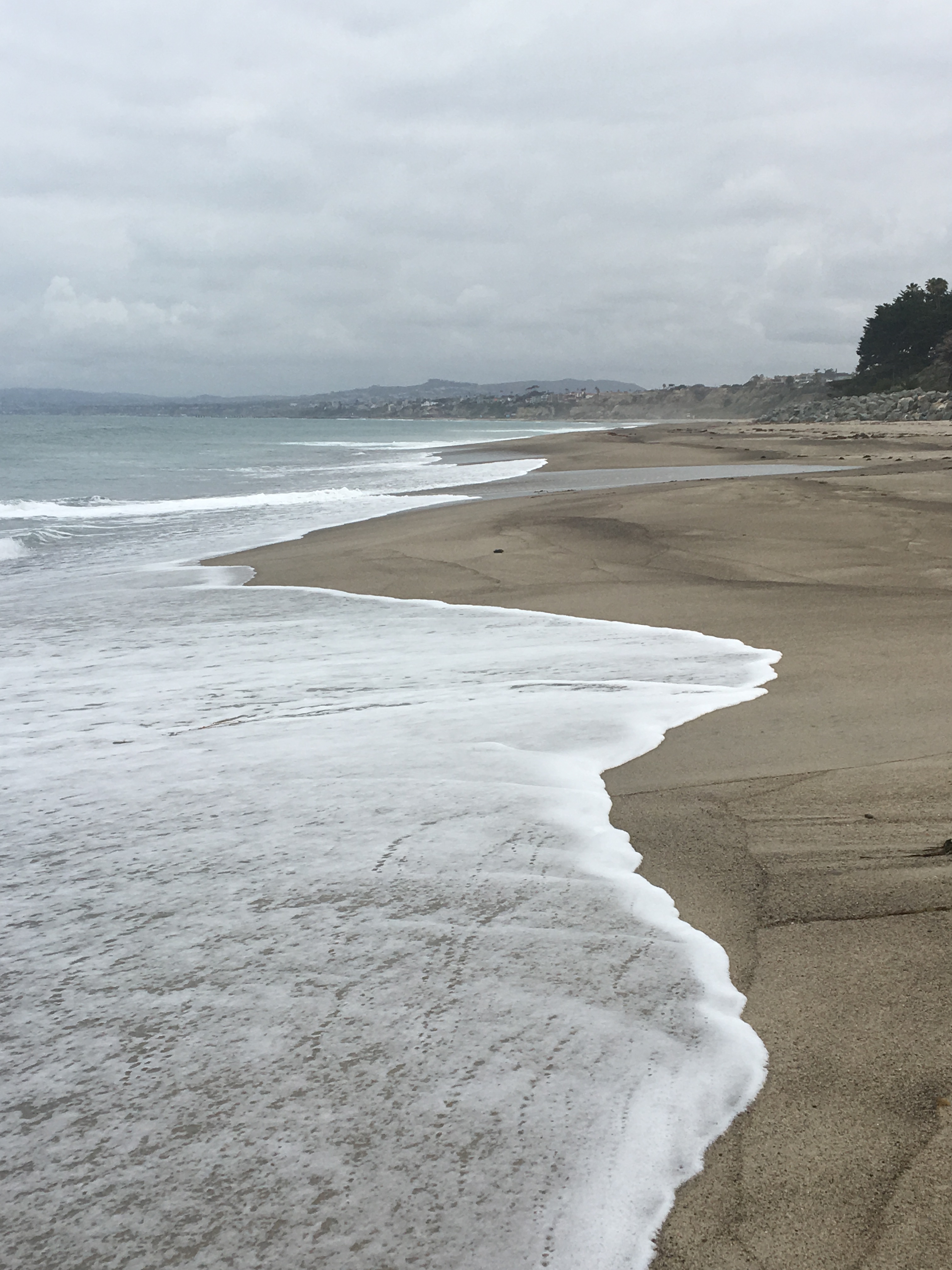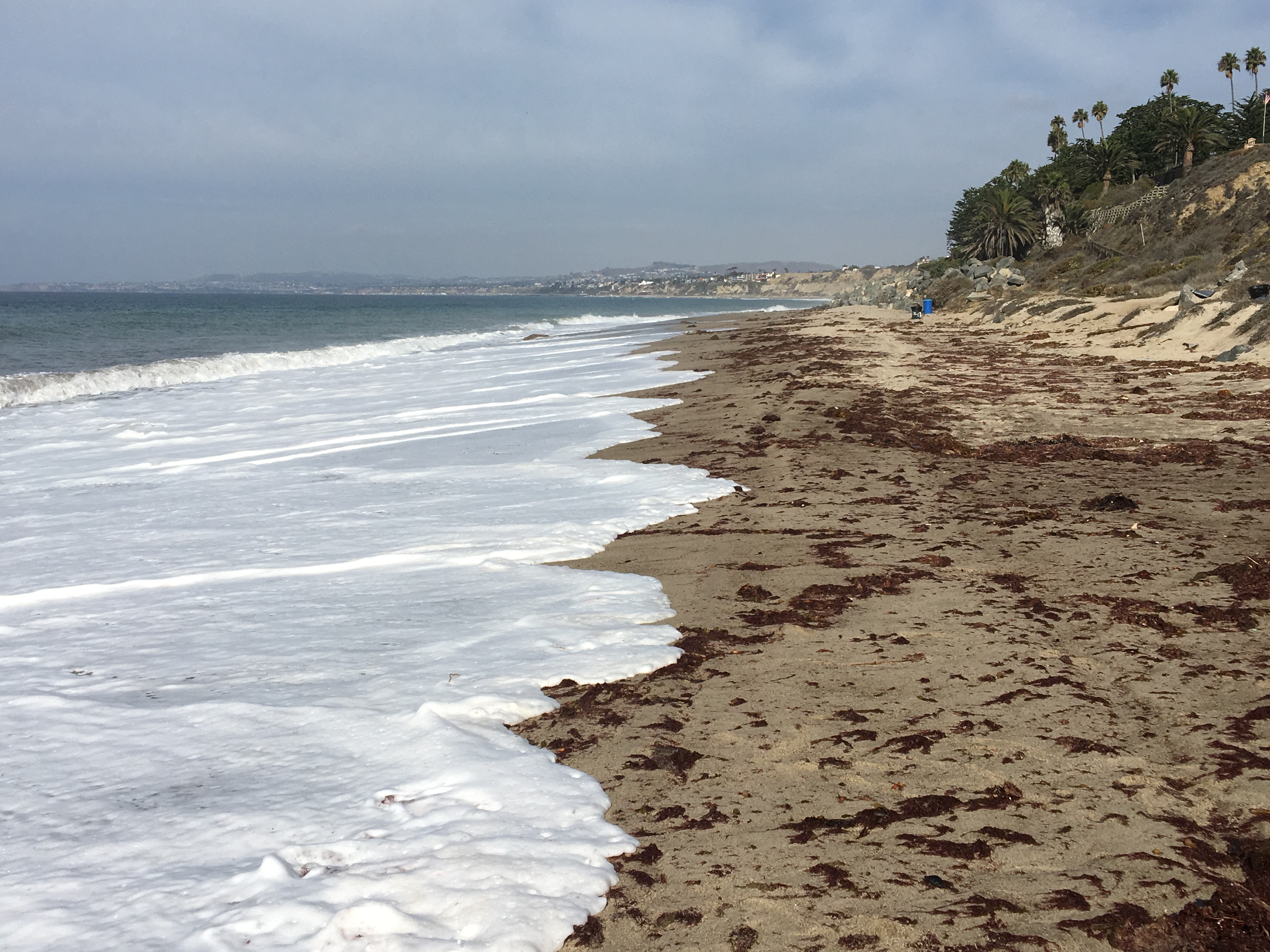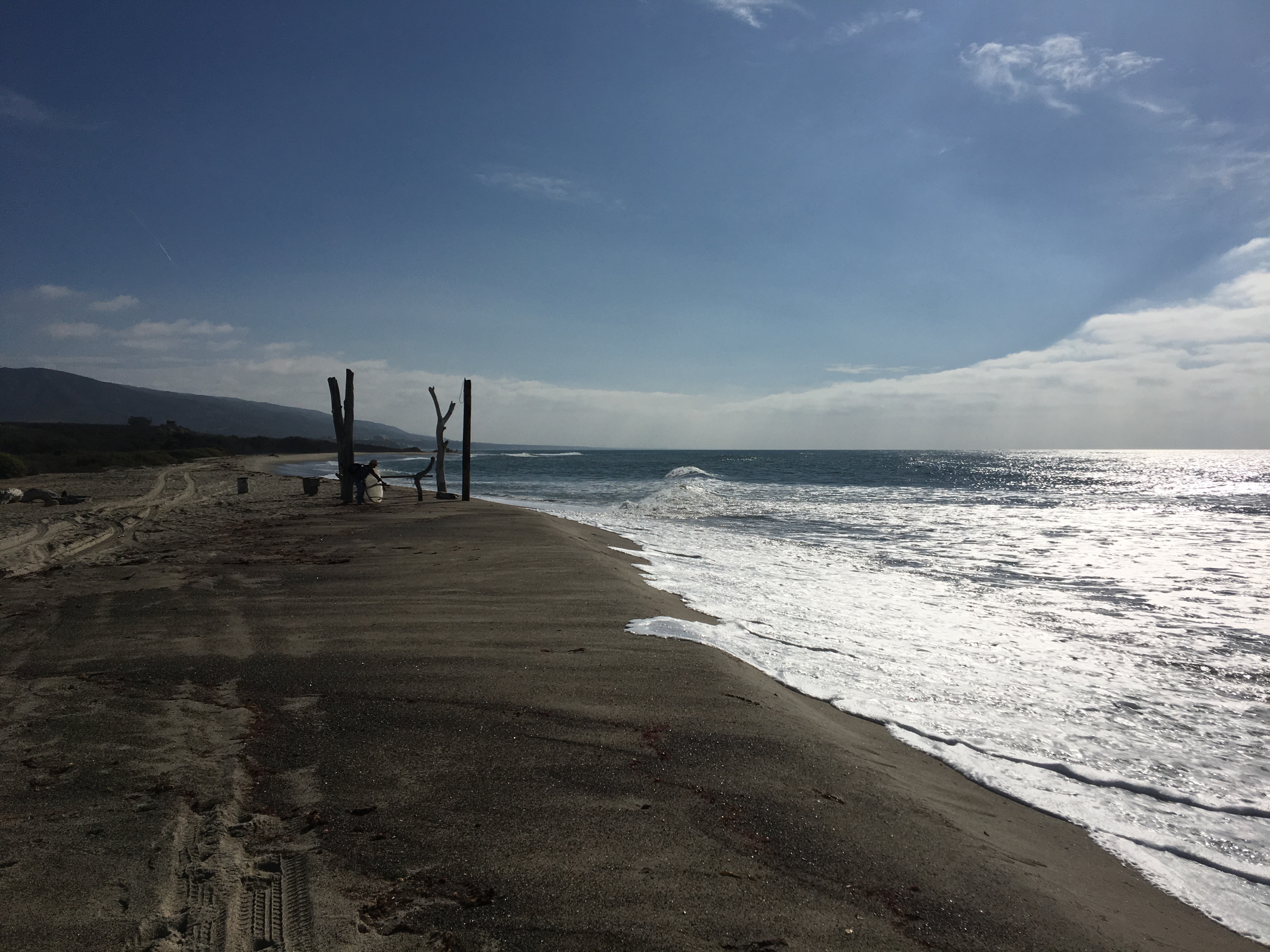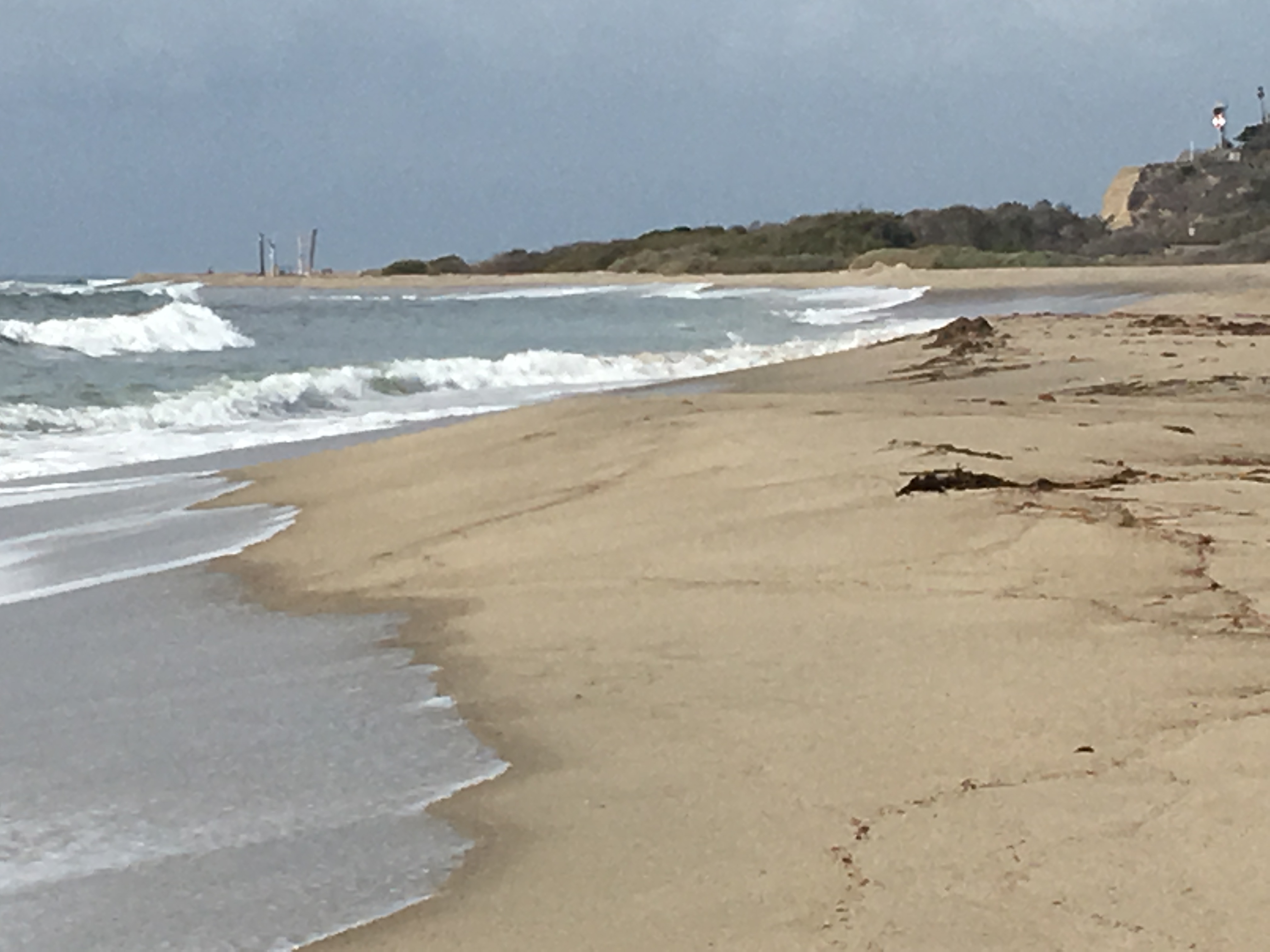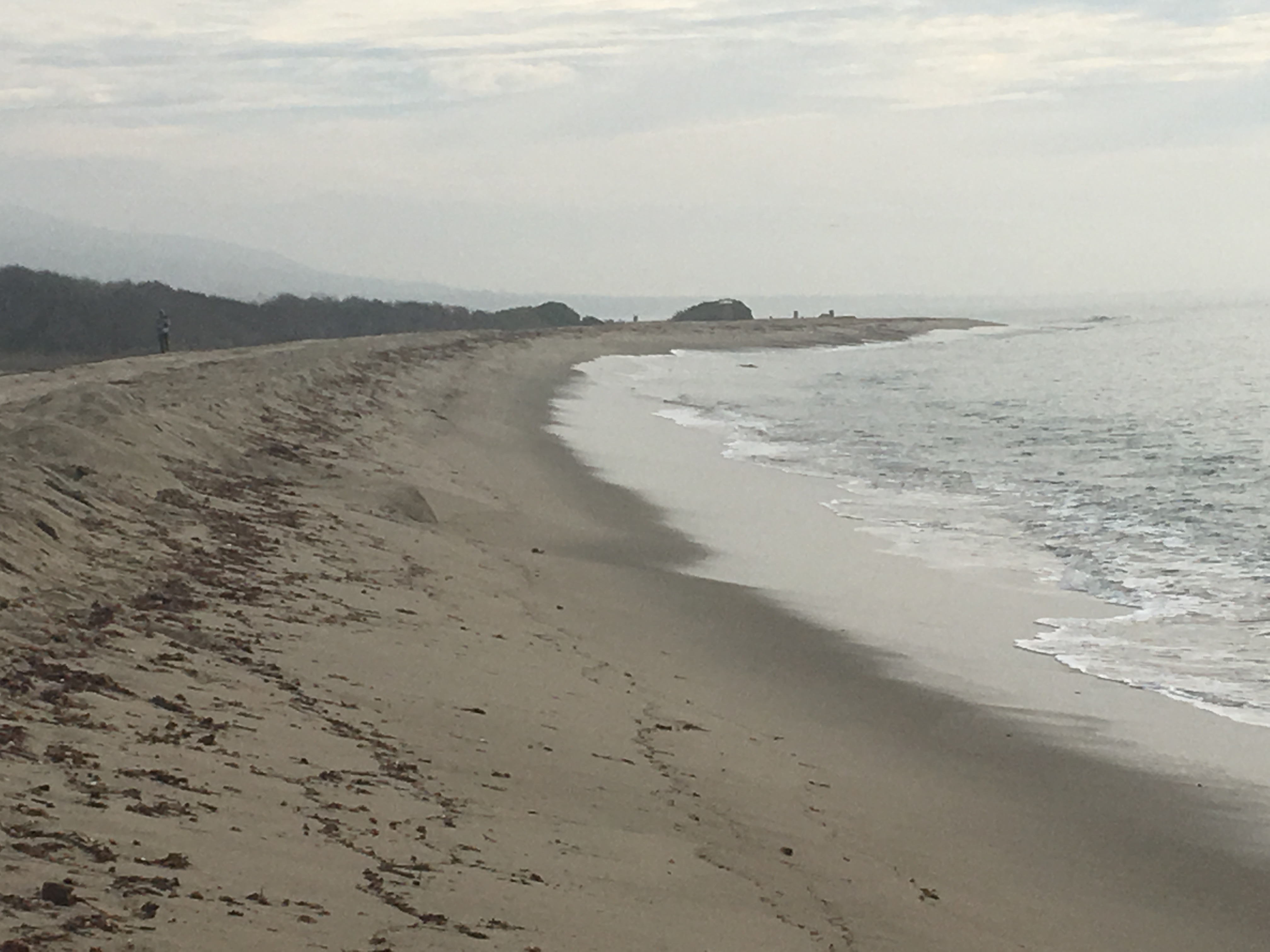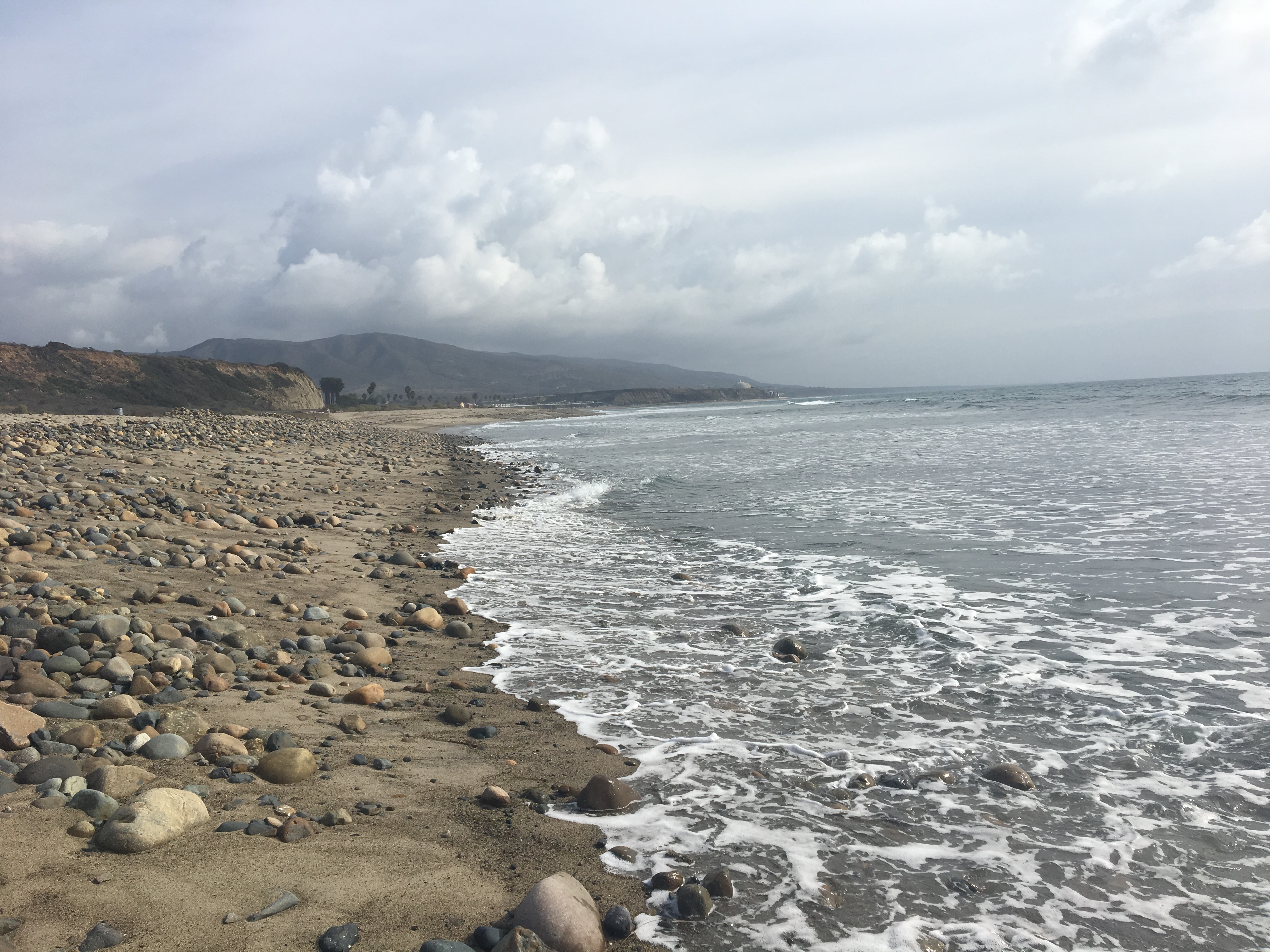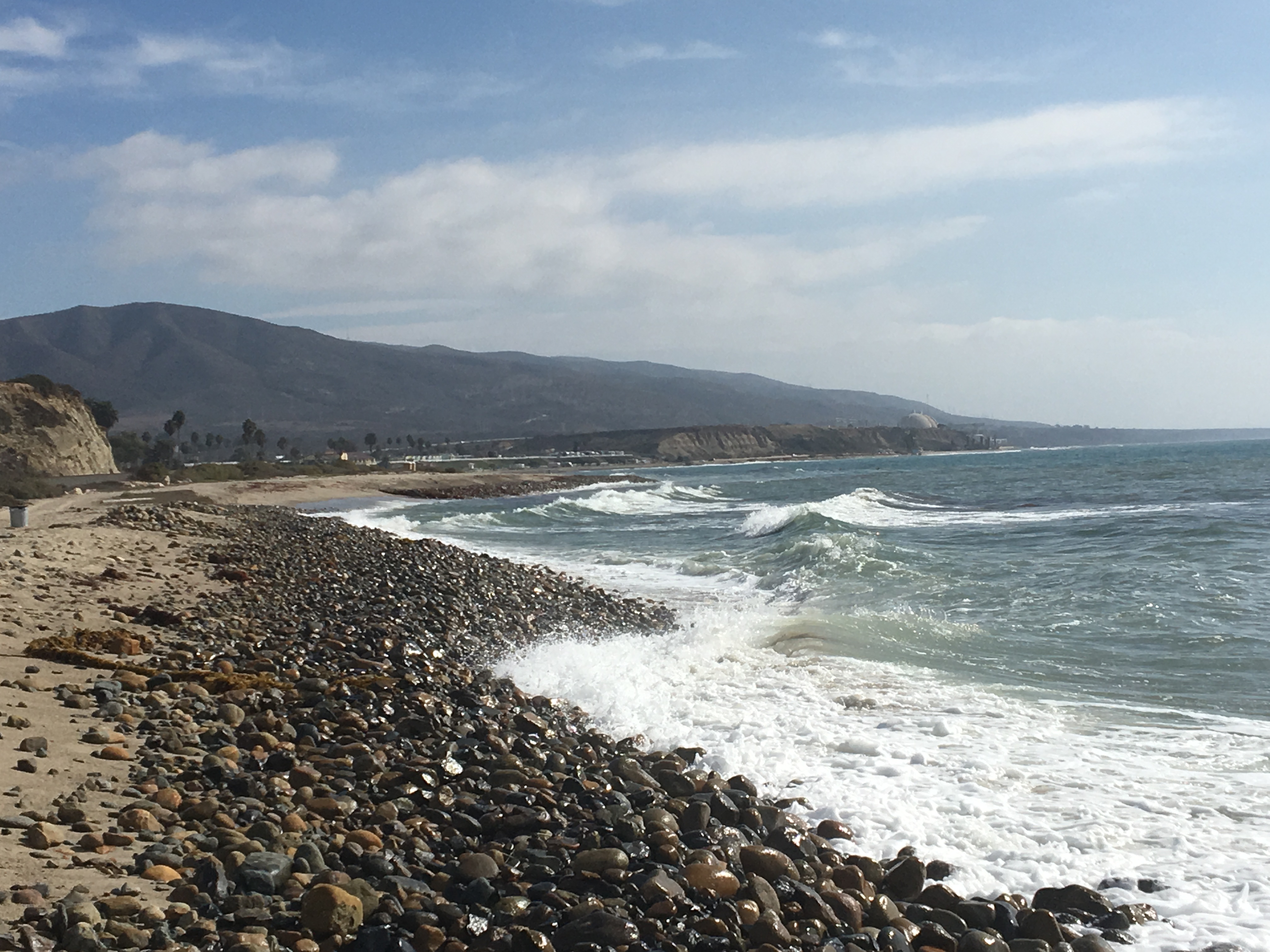Archives
Documenting Sea-Level Rise at Trestles: 2016-2017
La Política del Surf: “Me Preocupa el Desarrollo Desmedido”
El SALVADOR — Una entrevista realizada hace cinco años ya reflejaba los desafíos que la costa salvadoreña enfrentaría por la falta de planificación. El turismo ligado al surf ha transformado la vida de miles de habitantes de las playas del país, pero estos sufren las tensiones entre los surfistas locales y los turistas, la privatización de las playas y el temor al deterioro ambiental.
Read: La Política del Surf – Me Preocupa el Desarrollo Desmedido
¿Por Qué Peligra El Turismo? Surfistas y La Privatización del Acceso a Las Playas
Read: Por Qué Peligra El Turismo – Surfistas y la Privatización del Acceso a Las Playas
Concrete Pentagons and Resistance
Monday drop-off: 7:22 a.m.
A pentagon of sidewalks frames patches of grass near a sand-filled playground, which fronts a rectangular parking lot. Stamped upon the concrete of several gray slabs is an invisible manifesto. It reads: Use Me. Sprinkle Me with Sand. Sweep Me. Flood Me with Sprinklers. Go to the Ramada. Take Me to the Fields. Follow Me to the Recreation Center, to the School, to the One-Hoop Basketball Court, to the Swings, to the Bathrooms. But All the While, Whatever You Do, Avoid the Grass.[1] Eighteen minutes remain until the first bell will ring.[2] A mother endorses the sidewalk manifesto, striding along the concrete toward the picnic tables under the ramada; six pillars, evenly spaced apart, support a wooden roof that warms under the morning sun. They play chess with four trash cans, stout as the rook. “Come on,” she instructs. “This way.” Her son rejects such conformity. He rejects the orderly procession of labor, the path to training for adulthood’s fifty-hour work week, “suitcase backpacks with wheels” in tow, adult-child pair marching in unison to the militant beat of the parking lot’s beeps and honks. “I’m going this way,” he says as he cuts across the brown grass on his three-wheeled scooter.[3] He is almost free without his backpack — unlike Lance, his friend who is strapped into productivity. Lance wears a nylon Batman bag “Made in China” as he strolls along the curves of concrete, occasionally dipping his feet into the playground’s sand.[4] He affirms a spatial order with his “walking rhetoric”, which obeys the rules of his own body’s grammar.[5]
Mother and son reach the ramada, their rhythm in sync with the groan of the playground’s tire swing. Groan, three-steps, groan, four-steps, groan, three-steps, er-eee, er-eee, er-eee. DJ Tire Swing, he is. The crowd of crows in the nameless trees roars. “I’m going on the rings,” the boy announces. He takes off his helmet and hangs it onto the scooter. It is a ritual for playground preparation. [6] The mother sits down at the concrete picnic table, an addendum to the sidewalk manifesto. It reads: All Things Urban Must be Concrete. Or Metal (like the slides where children throw sand). Or Dirty (like the table’s top, caked in last month’s applesauce, yogurt droppings and hand snot). Or Dead (as fallen leaves, brown, rotting tips curled up like the wings of cockroaches).
In the parking lot afar, that forbidden land for non-walkers, a game unfolds. For those adults who know how to drive, it is an easy game to play. Golden rule: There are no winners. Ever. Then drivers line up in the big spots between the white lines that look like inch marks on a wide, black ruler. beepbeep means no cheating. BEEPBEEPBEEEEEEP means some rule has been broken. The first player to yell an audible insult experiences a public shaming in the form of stares from walkers and non-walkers alike. Beady stares from culturally conglomerated melting-pot eyes: Korean, Japanese, Mexican, Vietnamese, Haitian, Salvadoran, Laotian, Italian, German, Swedish, Indian, Panamanian, Egyptian, Iranian, Canadian… They recognize that a verbal assault disrupts all symphonic priming in the orchestra’s pit of productivity. Beyond visible, rusty brakes of the UCSD buses on Regents Road command attention like the baton of an impatient conductor. The bell rings. Non-walkers and walkers transform into hasty joggers. The concrete pentagons, triangles and ovals facilitate foot traffic, congested like a south-bound interstate during rush hour. Ankle-to-ankle, foot-to-foot, toe-to-toe, annoying, dangerous traffic. The grass and sand streets make alternative routes. No space, no time, no desire to honor the sidewalk manifesto. All vectors of movement converge into a rotunda of asphalt, where never-walkers imprison themselves in their cars, dumping children onto a conveyer belt of more concrete.[7] Next stop: Doyle Elementary. Doyle Park and its empty ramada prep for an early morning nap.
Monday pick-up: 5:16 p.m.
Only three cars are parked in the row of spaces that face the ramada. A gray one swoops left in between the white inch marks. A blue minivan behind curves right and straddles a different set of lines. Both parents exit their mobile prison cells and stroll past the ramada toward the red-and-white sign stapled to the wall of the Pepto Bismol-pink recreation center. It reads: DOYLE KIDZ KAMP. The sun gazes over the park, directing its warmth toward a seagull perched atop the recreation center, which shields the space from encroaching apartment complexes.[8] Concrete snakes its way out of a den toward the ramada, slithering left to greet the one-hoop basketball court. The trash-can rooks have slid across the concrete chessboard to form a line of defense behind six picnic tables under the ramada. Three Indian men, an Indian woman and her Indian granddaughter sit at one table with the cracked bench. This is their daily ritual: stay fifteen minutes, swap stories, people-gaze, and then walk along the one-hoop path toward the baseball field east of the playground. Their curried conversations tinkle like teaspoons against coffee cups until a blue recycling truck enters the parking lot, chutters, squeals and dumps.[9] They stand up to leave when a swarm of teenage girls beeline toward the grassy knoll inside a concrete pentagon.
The girls do hand-claps and feet stomps, singing: “Down by the banks of the Hanky Panky / Where the bull frogs jump from bank to banky / With a hip, hop, hippity, hop…” The little boy exits the recreation center and rides his scooter toward a rural picnic table banished from the ramada’s urban kingdom. “Can I ride my scooter around the playground?” he asks. “I wanted to do that this morning.” The mother grants permission, and he begins to push himself around the hardened ledge of a sandy pool, its surface whipped by the windy feet of other children. “Look, mommy! No hands!” he yells with a wave. He makes it from start to finish, arriving at the one-hoop basketball court with both feet on his scooter. Bom-bom-bom goes the bass from a basketball. Black youth arrives by skateboard, a teen’s right leg pumping the slick terrain to gain speed as his left leg preps for a kickflip.[10] The wheels click over the concrete’s cracks, background beats from headphones at full volume. A blonde toddler drives his tricked-out stroller; he is intent on passing the slow scooter and skateboard. He pauses for the four-year-old biker on training wheels. “Badaming gahn, bom-bom-bom,” sings the female rider over and over. “Badaming gahn, bom-bom-bom.” The first cry, emptied from the lips of a toddler dressed in khakis and a striped shirt, spikes the nighttime nectar.
The group of teenage girls begins to stretch in the grass, bottoms angled toward the cooling air. They move their performance to the ramada’s main picnic table, now a makeshift fluidity bar for the urban ballerinas. Pink water bottles, sweatshirts, exercise diaries, and handbags decorate the top. Two mothers monitor the young women, enacting a form of corporeal control. “Why are some people still stretching while some people are standing and talking?” they interrogate. The black boy on his skateboard returns full speed, clicking and clacking around the concrete pentagon adjacent to the ramada. The boy with the scooter abandons it, opting to skip past the ramada toward the playground, which rises from the sand like a wrecked pirate ship. Three children play in harmony. “Five more minutes,” the mother signals. “It is getting cold, and it’s time for dinner.”[11]
[1] I lay out this description to show what urban planners and architects have in mind as they create a space for human beings to move through and interact at a ramada at Doyle Park. There is a sense of order and a construction of discipline that concrete commands in this built environment. Sidewalks generally dictate human movement and direction. DeCerteau, writing against conventional theoretical understandings of space, would reject the architect and urban planner’s totalizing park plan because it does not account for the ways in which people re-imagine and move across disciplined landscapes. He offers a ground-based perspective where spatial practices underscore how bodies engage with the world — that is, their anticipated behavior juxtaposed with their actual behavior. This perspective is absent in conventional theory, which he acknowledges when he writes: “Perspective vision and prospective vision constitute the twofold projection of an opaque past and an uncertain future onto a surface that can be dealt with” (1984, 94).
[2] I specifically acknowledge time as eighteen minutes here, as well as incorporate dialogue, to account for the role that each element plays in the production and experience of space. At Doyle Park, all concrete leads to a public institution of learning — that is, Doyle Elementary. In the morning, prior to the ring of the first bell, the playground itself serves as a quick pit stop for parents and children in transit. During this time, the park’s design, location of ramadas (of which there are two) and intersection of concrete paths discourage the act of lingering in space. Rather, all elements usher human bodies away from leisure and toward “work.” As such, it is easy to overlook spatial practices occurring in specific places such as the ramada. DeCerteau is aware this is the result of “functionalist organization,” which “by privileging progress (i.e. time), causes the condition of its own possibility — space itself — to be forgotten; space thus becomes the blind spot in a scientific and political technology” (1984, 95).
[3] DeCerteau accounts for a walker’s unexpected behavior of which maps may anticipate yet cannot control. A story that occurs “off the beaten path,” for example, underscores the voyeur’s limited visibility as s/he creates a master plan of recreational totality. Surely not everyone sticks to the rules. This is why DeCerteau argues, “What a map cuts up, the story cuts across” (1984, 129).
[4] I incorporate a description of Lance’s backpack to draw attention to an economic world that exists beyond what is visible and audible at the ramada.
[5] The boys’ “pedestrian speech acts” — that is, one child’s decision to avoid the sidewalk contrasted with another’s willingness to walk along it — reinforces my point about actors’ embodied practices that resist and legitimize self- and social-discipline via space. DeCerteau highlights this phenomenon when he writes, “In the present conjuncture, mode of administration and an individual mode of reappropriation, this question is no less important, if one admits that spatial practices in fact secretly structure the determining conditions of social life” (1984, 96).
[6] The boy’s decision to distance himself from his mother supports DeCerteau’s notion that space produces the rhetorics of child’s play and game, of which memories, boundaries, transgressions and progress become re-inscribed through objects (in this case, rings, swings and slides). The boy will recollect when he first crossed from one side of the rings to the other without his mother’s help. DeCerteau calls this a “departure of the mother,” writing “… (sometimes she disappears by herself, sometimes the child makes her disappear) [which] constitutes localization and exteriority against the background of an absence” (1984, 109).
[7] The presence of cars, visible from the ramada, is a stark opposition to the act of walking. Contrary to what DeCerteau writes, “Walking, which alternately follows a path and has followers, does not create “a mobile organicity in the environment, a sequence of phatic topoi” (1984, 99). Rather, there is tension between pedestrians, who compete for space along the sidewalk and confront dangerous vehicles that threaten to run them over as they enter the parking lot.
[8] The recreation center’s presence warrants mentioning because it complements ramada-centered activity. In this sense, it is a place of exercise and repose that captures movement from “here to there.” As DeCerteau notes, “Places are fragmentary and inward-turning histories, pasts that others are not allowed to read, accumulated times that can be unfolded but like stories held in reserve, remaining in an enigmatic state, symbolizations encysted in the pain or pleasure of the body” (1984, 108).
[9] Lefebvre’s distinctions of the types of rhythms that occur in space are of particular importance here. In this instance, cyclical rhythms are the most noticeable, “with a timetable that is almost always the same; the flows and conglomerations succeed one another: they get fatter or thinner but always agglomerate at the corners in order subsequently to clear a path, tangle and disentangle themselves amongst the cars” (2004, 30).
[10] Lefebvre offers an important tip about how to incorporate the presence of bodies while engaged in ethnography. He instructs us to look for the being, which complements DeCerteau’s notion of spatial practice. Without the being, without the body, what happens to activity? Sounds are not just rhythmic. The presence of the skateboarder near the ramada provides a rhythm of rebellion and race. Following Lefebvre’s advice, “In place of a collection of fixed things, [I] will follow each being, each body, as having its own time above the whole. Each one therefore having its place, its rhythm, with its recent past, a foreseeable and a distant future” (2004, 31).
[11] I conclude with this dialogue between the mother and son to demonstrate how “rhythm enters into the lived” (2004, 77). In accordance with what Lefebvre writes, “We are only conscious of most of our rhythms when we begin to suffer from some irregularity” (2004, 77). This relationship between mother and son is my way of accounting for my presence. Failure to adhere to a schedule defined by time produces conflict (screaming, kicking sand, crying and yelling due to hunger and fatigue) across space (park) and place (home).
Surf Tourism: Social Spatiality in El Tunco and El Sunzal, El Salvador
When Salvadoran government officials signed the Peace Accords in 1992, the global surf community took note. For twelve years, civil war had ravaged the Central American country, leaving nearly 80,000 civilians dead or missing. Once the republic re-emerged as a popular surfing destination, miles of pristine beaches and near-vacant waves were no longer accessible only to the fearless. By the turn of the century, a beach town nicknamed El Tunco became a refuge where waves beckoned the war-weary. Between 1993 and 2009, El Salvador attracted an estimated 12.5 million tourists, many of them in search of surf. El Tunco’s evolution into a wavetopia raises several issues that warrant attention. This paper examines how the global surf industry affects EI Tunco’s economic and cultural landscape. Grounds for the study concern tourism, property rights, capital investment, and the aftermath of neoliberal reforms. Ethnographic and field research conducted in August 2010 indicates property values in El Tunco have nearly tripled since 2005. Matters pertaining to land ownership and beach access also have aggravated social tensions. One central argument emerges: Surf tourism serves as a key sector in a depressed Salvadoran economy wherever waves are in demand. Published scholarly analyses dissecting the influence of the global surf industry on specific Central American countries are either undeveloped or nonexistent. The qualitative data presented should fuel discussions and promote more awareness among individuals who recognize surfing as a globalized lifestyle, sport and business.
Keywords: EI Salvador, EI Tunco, El Sunzal, Surf, Tourism, Neoliberalism, Property Rights, Civil War, Travel, Waves, Spatiality
Please see: Surf Tourism – Social Spatiality in El Tunco and El Sunzal, El Salvador.
Close-Up: Mark Canavarro of Cubicles Office
SAN DIEGO — Calling cubicles a danger zone may sound extreme, but Mark Canavarro knows a dirty secret: Many of these workspaces contain pollutants that are harmful to the environment and people’s health. As president of Vista-based Cubicles Office Environment, a.k.a Cubicles — a cubicles supplier that also provides custom office solutions and systems furniture — Canavarro first heard about the perils of toxic furnishings last year while collaborating on a sustainable-design project with EDAW Inc.
Read: Cubicles Civision Connects Suppliers with Firms Seeking Eco-Friendly Office Gear
Close-Up: Harris Koenig of Alvarado Hospital
SAN DIEGO — Although the road to recovery takes time, CEO Harris Koenig believes every day Alvarado Hospital makes progress. Since January 2007, Koenig, current owners Pejman and Pedram Salimpour, and their management team have tried to distance the 311-bed medical center in East County from the costly aftermath of a scandal that erupted in 2005 under Tenet HealthSystem, a subsidiary of Dallas-based Tenet Healthcare Corp. Federal prosecutors claimed that over the course of a decade, physicians received more than $10 million in illegal kickbacks disguised as “relocation payments” from Tenet, Alvarado and its former CEO Barry Weinbaum for referring patients to the hospital.
Read: Gradual Improvements Keep Alvarado CEO Focused on Future, Not Past
Close-Up: Tania and Jeff Kacha of Hob Nob Hill
SAN DIEGO — The first time Tania and Jeff Kacha sat down for breakfast at Hob Nob Hill, they knew what they wanted before they even opened their menus. “We thought, ‘Someday we would like to own this place,'” Tania said. The aspiring restaurateurs faced one obstacle, however: After 49 years of running the famed eatery on Banker’s Hill, founder Harold Hoersch planned to sell it to someone else. Until, that is, he met the Kachas, who were working at a tiny coffee shop in east San Diego.
Read: Hob Nob Hill Still Charms Locals with Cozy Atmosphere, Traditional American Cuisine
Close-Up: Beth Fischer of Pardee Homes
SAN DIEGO — Dismal reports may plague the residential real-estate sector these days, but Beth Fischer prefers to keep a positive perspective. As president of the San Diego division of Pardee Homes, Fischer oversees all operations concerning current and future projects. The 48-year-old leader has come a long way since graduating with a bachelor’s degree in economics from Xavier University, slowly scaling the corporate ladder in a male-dominated industry to become a top executive for one of San Diego’s largest homebuilders. Pardee, a subsidiary of Los Angeles-based Weyerhaeuser Co., develops and builds new homes, apartments, master-planned communities and business parks in California and southern Nevada.
Read: Pardee Weathering Storm that Continues to Batter Residential Real-Estate Market




